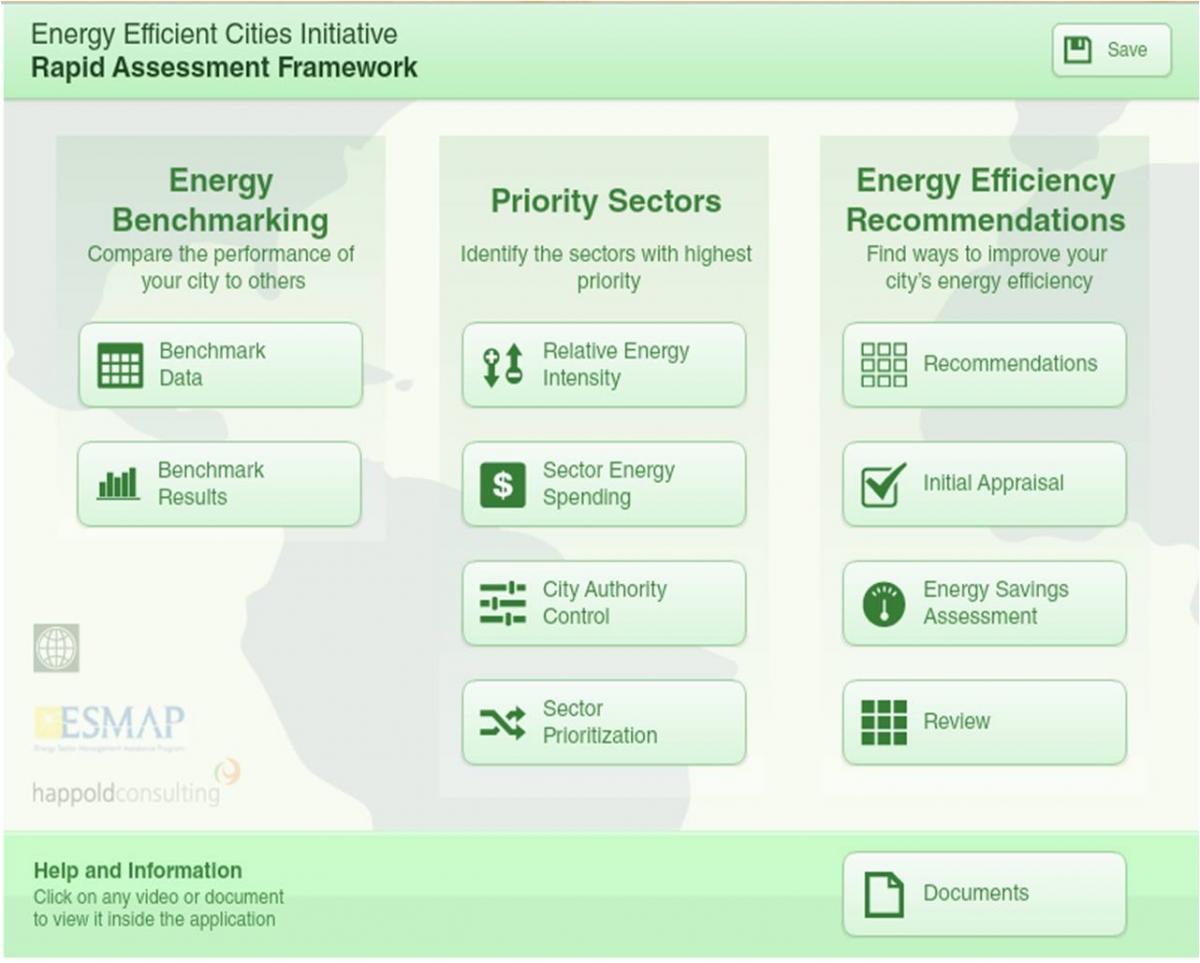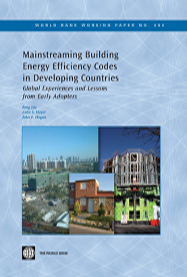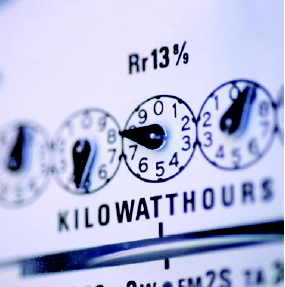Energy Efficient Cities is working to identify innovative approaches to design and implement energy efficiency programs at the city level. To this end, the program has developed tools, guidance notes, and other products to help cities better understand their energy needs and develop policies and programs to use energy more efficiently. A summary of these is found below.
 |
Tool for Rapid Assessment of City Energy (TRACE)
Energy Efficient Cities commissioned a diagnostic tool for analyzing energy use in cities. The tool, called TRACE, prioritizes sectors and suggests specific actions to save money and improve performance. TRACE helps cities diagnose their energy use and recommend measures to improve their efficiency. Learn more. |
 |
Public Procurement of Energy Efficiency Services
Universal concerns about global energy security, competitiveness, and environmental protection make energy efficiency more important ever. However, realizing large-scale savings has proven a significant challenge due to many barriers. Public Procurement of Energy Efficiency Services looks at energy savings performance contracts (ESPCs) as a means of overcoming some of these hurdles in public facilities. Learn more. |
 |
Energy Efficient Cities: Assessments Tools and Benchmarking Practices
Energy Efficient Cities: Assessment Tools and Benchmarking Practices is an effort to catalyze solutions that would delink high levels of carbon-intensive energy use from Energy Efficient Cities: Assessment Tools and Benchmarking Practices is an effort to catalyze solutions that would delink high levels of carbon-intensive energy use from urban growth. It has been developed from a careful review of selected papers presented during two ESMAP-sponsored sessions at the fifth World Bank Urban Research Symposium, “Cities and Climate Change: Responding to an Urgent Agenda.”Learn more and download the pdf. |
 |
Mainstreaming Building Energy Efficiency Codes in Developing Countries
Building energy efficiency codes (BEECs), which regulate the energy performance of building design and its compliance during construction, are broadly recognized as a necessary government intervention to capture the economic potential of energy efficiency gains in residential, commercial, and public service buildings. Mainstreaming Building Energy Efficiency Codes in Developing Countries aims to inform both World Bank Group and its clients about global best practices and emerging lessons from developing countries in design and implementation of BEECs. Click here for overview.
Purchase this publication. (Geographic discounts available). |
 |
Energy Efficiency Indicators: Best Practices and Potential Use in Developing Country Policy Making
Energy efficiency indicators are widely considered an important tool to support energy efficiency policy making. Although substantial international efforts have been made to develop indicators and to draw lessons from national and international trends and comparative analyses, in developing countries, a lack of data currently limits the role energy efficiency indicators can play. International organizations and development agencies can support this effort through financial and technical support, dissemination of information and tools, and by incorporating the development and application of energy efficiency indicators in their core strategic and funding activities. Learn more: Communication Noteand Report. |
|
|
Transit Bus Operational and Maintenance Practices to Maximize Fuel Economy In an effort to offer solutions on urban transport, Energy Efficient Cities is developing a guidance note on transit bus operational and maintenance procedures that is a practical and useful tool to guide the implementation of a program that will enhance the fuel efficiency of buses. The guidance note is targeted to city transit managers and their technical staff, mainly in developing countries to enhance the energy efficiency of the city transit. Learn more |
Learn more about Energy Efficient Cities' other components:
Contact: Ivan Jaques, Energy Efficient Cities Program Team Leader, ESMAP
ESMAP | Energy Efficient Cities | Achievements | News | Blogs | Publications
